CSPO News
-
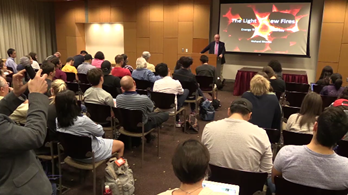
After Paris: Energy, Carbon & Society in Global Transition
Energy and Society Symposium
SFIS presented the “After Paris: Energy, Carbon, & Society In Global Transition” energy symposium featuring two dynamic speakers, on February 23. Stephanie LeMenager’s talk, Zombie Fuel was on living oil, casting the modern energy system and aspirations for a renewable future. Richard Rhodes’ talk, “The Light of New Fires” focused on energy challenges of yesterday, today and tomorrow.
-
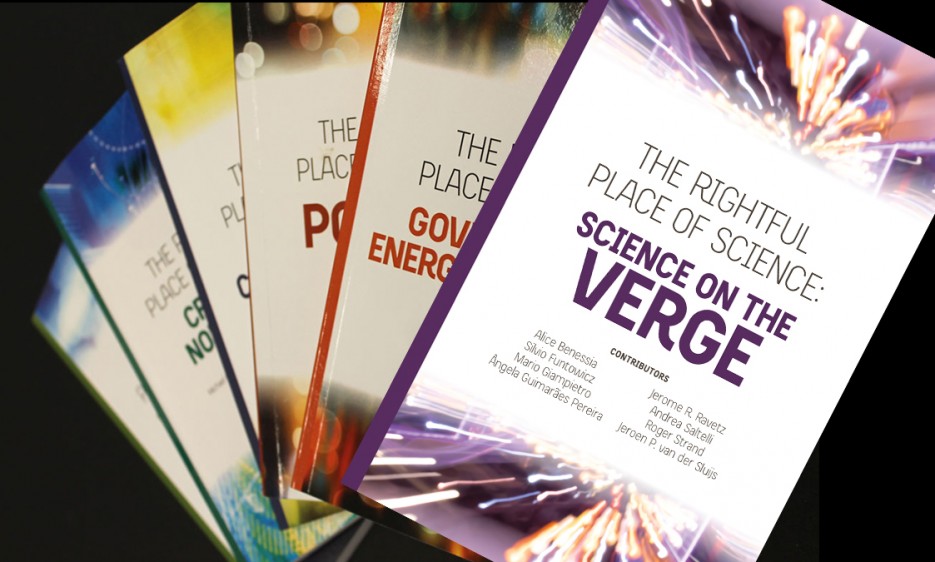
CSPO Launches New Book in The Rightful Place of Science Series
"Science on the Verge" analyzes the ongoing crisis in science and science-based policy, and what can be done about it.
This provocative new volume in the Rightful Place of Science book series examines the crisis looming over the scientific enterprise. Not a day passes without news of retractions, failed replications, fraudulent peer reviews, or misinformed science-based policies. The social implications are enormous, yet the crisis has remained uncharted—until now.
-
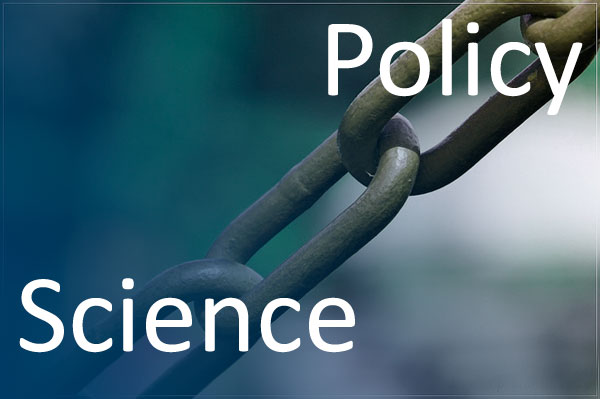
CSPO ranked among top S&T think tanks
The Consortium for Science, Policy & Outcomes has been ranked tenth worldwide among science and technology think tanks.
The Consortium for Science, Policy & Outcomes (CSPO) at Arizona State University has been ranked tenth worldwide among science and technology think tanks in the recently issued 2015 Global Go To Think Tank Index Report. In the ranking, CSPO is the top university-based Science and Technology think tank in the US.
-
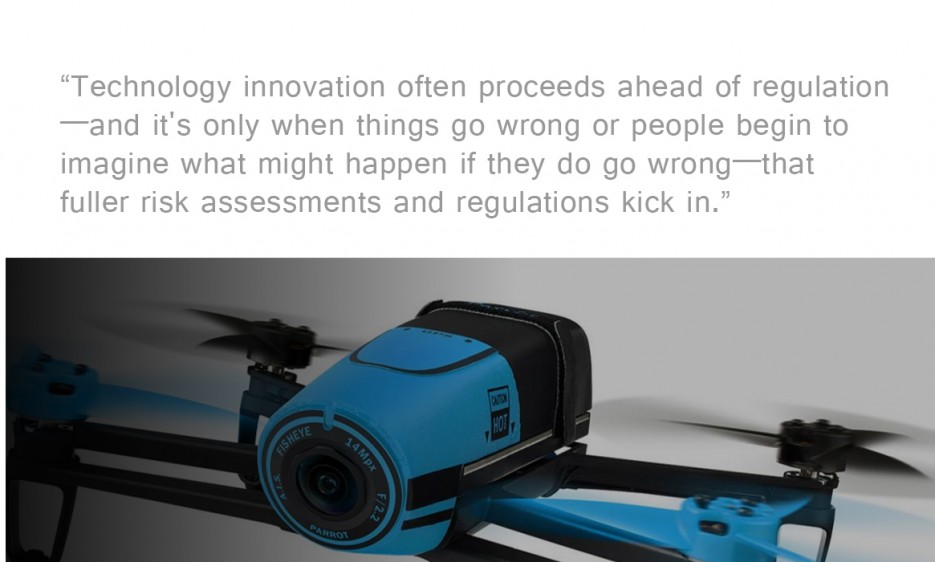
Q&A on risks and regulations of drone technology
with Andrew Maynard
Andrew Maynard, Director of the new Risk Innovation Lab, addressed some of the challenges in developing regulations for technology already in use—namely drones. Questions of privacy, safety and responsibility come to the fore in this Q&A with one of CSPO’s prominent thinkers.
-
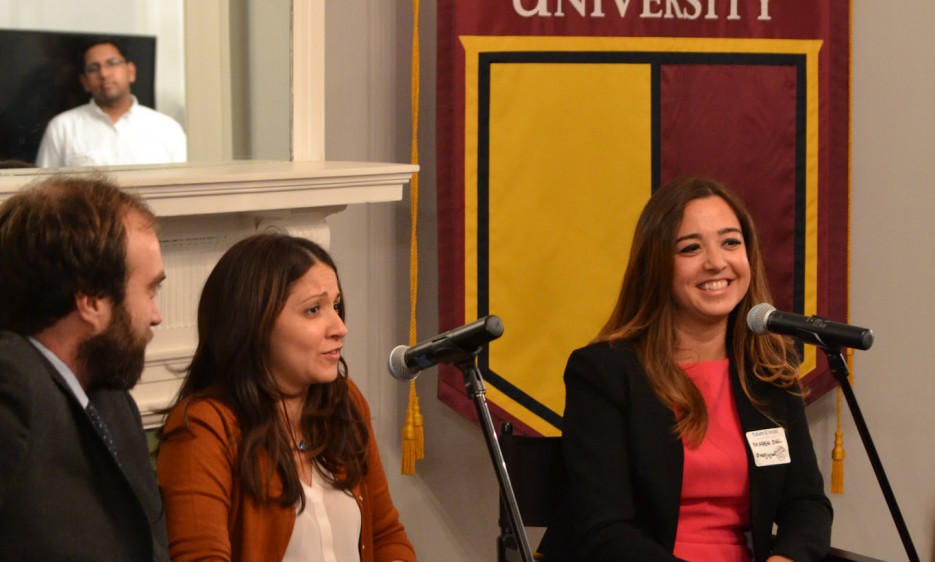
Science and technology collaboration provides diplomatic openings
ASU's new School for the Future of Innovation in Society leads the university's global science & diplomacy efforts
Diplomacy is an art, not a science. But science increasingly plays an important role in diplomacy. Some of our biggest challenges can’t be contained within borders, which means that nations around the world need to coordinate their efforts. Meanwhile, science itself can be used as an olive branch: Even when two countries’ political leaders aren’t on good terms, their scientists can exchange ideas, paving the way for more communication down the road. The School for the Future of Innovation in Society has been leading efforts to use science and technology to improve international relations.
-

Managing the complexities of power supply, demand
STIR Cities - new NSF-funded project
While innovations are helping to create “smarter” grids that enable utilities to better monitor, manage and adapt to these changing energy flows, innovations also introduce new issues related to citizens’ rights and responsibilities when it comes to consuming and producing power.
-
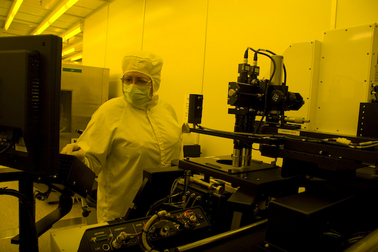
Jameson Wetmore to lead Social and Ethical Implications component of NNCI
ASU will lead national nanotechnology site
ASU has been chosen to lead national nanotechnology site. CSPO’s Jamey Wetmore will be leading the Social and Ethical Implications component of the National Nanotechnology Coordinated Infrastructure (NNCI) effort.
-
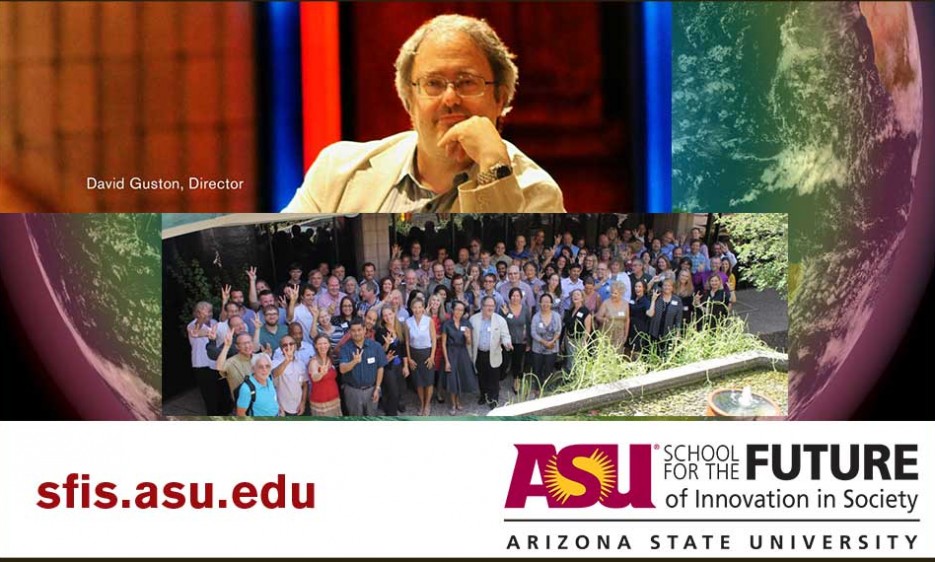
New school explores how we can best make the future we want
The future—how do we get there from here?
CSPO is pleased to announce the launch of the new School for the Future of Innovation in Society at ASU.
Find additional features in ASU News and AZcentral.
-

Students learn to navigate the complex world of science diplomacy
CSPO's new Science Diplomacy and Leadership module of the Science Outside the Lab (SOtL) series
A new Science Outside the Lab track in science diplomacy and leadership brought together a cohort of 14 students representing seven Latin American countries and the US to learn about the complex world of international science diplomacy.